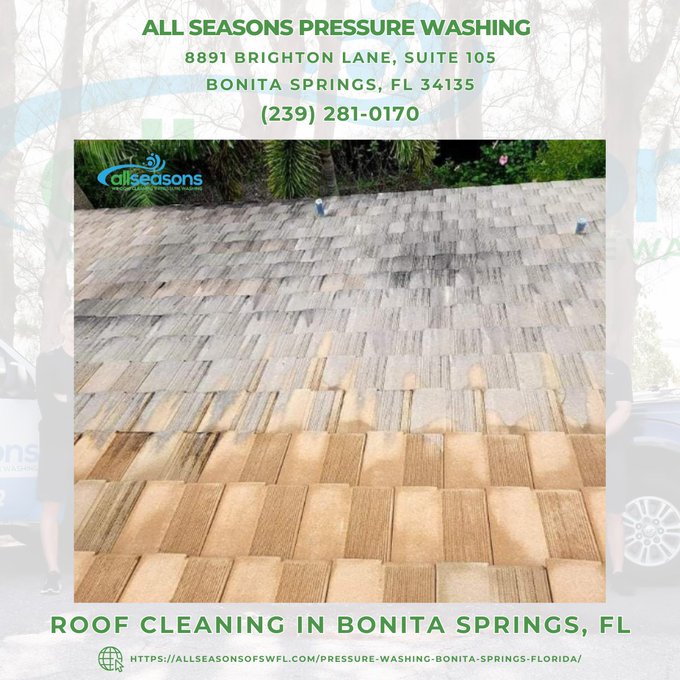The roof above your head is one of the most critical components of your home. It protects you and your belongings from the elements and adds to the overall aesthetic appeal of your property. However, over time, roofs can accumulate dirt, moss, algae, and other debris that not only detracts from their appearance but can also lead to significant damage if left untreated. This raises an important question: Is steam cleaning a safe option for your roof? In this comprehensive article, we will explore various aspects of roof cleaning, including methods, costs, safety concerns, and maintenance tips.
What Is Roof Cleaning and Why Is It Important?
Roof cleaning refers to the process of removing contaminants such as moss, algae, lichen, and dirt from your roof's surface. Over time, these elements can cause discoloration and decay in roofing materials. Neglecting roof cleaning may result in leaks or even structural damage.
Benefits of Roof Cleaning
- Improved Aesthetic Appeal: A clean roof enhances the curb appeal of your home. Extended Lifespan: Regular cleaning helps extend the life of roofing materials. Preventative Maintenance: Early detection of potential issues can save you money on repairs.
Is Roof Cleaning a Good Idea?
Absolutely! Regularly cleaning your roof is a good idea as it prevents long-term damage that could lead to costly repairs. A clean roof allows for better inspection and maintenance opportunities.
How Often Should Your Roof Be Cleaned?
Most experts recommend having your roof professionally cleaned every 1 to 3 years. However, this can vary based on environmental factors such as:
- Local climate Proximity to trees Presence of algae or moss
What Is the Best Method of Roof Cleaning?
There are several methods for cleaning roofs:
Soft Washing: Utilizes low-pressure water mixed with specialized cleaning solutions. Pressure Washing: High-pressure water spray eliminates debris but may damage shingles if not done correctly. Steam Cleaning: Employs hot steam to remove contaminants without high pressure.Is Steam Cleaning a Safe Option for Your Roof?
Steam cleaning is considered a safe option for many types of roofs when performed correctly. It effectively eliminates mold and stains without causing damage that high-pressure washing might inflict.
Pros and Cons of Steam Cleaning
| Pros | Cons | |-------------------------------|-------------------------------| | Environmentally friendly | Potential risk if improperly used | | Effective at killing bacteria | May require professional help | | No harsh chemicals involved | Initial cost may be higher |
Can I Clean My Roof Myself?
Yes, you can clean your roof yourself; however, it requires caution and proper equipment. If you're unsure about climbing on your roof or using certain tools like pressure washers or steam cleaners, it's best to hire a professional.
How Do I Clean My Roof Myself?
Gather necessary supplies (ladder, safety harnesses). Use a sprayer with a soft wash solution. Apply solution and gently scrub any stubborn areas. Rinse thoroughly with water.How Much Does It Cost to Coat a Roof?
The cost for coating a roof varies widely depending on material type and square footage but typically ranges between $1-$3 per square foot.
Does Roof Cleaning Extend the Life of a Roof?
Yes! Regular cleaning can significantly extend the lifespan of your roofing materials by preventing decay https://www.instagram.com/p/DIflwLtsbqi/ caused by moss or algae buildup.
What Happens If You Don't Clean Your Roof?
Neglecting regular maintenance allows contaminants to accumulate leading to:
- Structural damage Leaks Increased energy bills due to poor insulation
What Is Soft Wash Roof Cleaning?
Soft wash roof cleaning is an effective method that uses low-pressure water combined with eco-friendly detergents to gently remove dirt and grime without damaging shingles or tiles.
How Long Does It Take to Clean a Roof?
Cleaning a typical residential roof generally takes anywhere from 2 to 6 hours depending on size and condition.
Does Roof Coating Work?
Roof coatings can be beneficial in extending the life span of roofs by providing an extra layer of protection against UV rays and weather elements.
What Chemical Is Used to Clean Roofs?
Common chemicals used include bleach-based solutions or biodegradable cleansers designed specifically for roofing materials.
Should You Rinse a Roof After Washing?
Yes! It's essential to rinse off any residue from cleaning products after washing to prevent streaking or chemical buildup that could harm roofing materials over time.
Can Pressure Washing Your Roof Be Harmful?
Yes! While pressure washing effectively removes dirt, using high pressure can damage shingles or dislodge protective granules leading to leaks.
Is It Okay to Power Wash a Roof?
Power washing should generally be avoided unless performed by professionals who understand how much pressure is appropriate for specific roofing materials.
FAQs
1. How often should I clean my roof?
Every 1-3 years is recommended based on environmental conditions.
2. Can I walk on my roof to clean it?
Walking on roofs carries risks; always prioritize safety first!
3. What happens if you don’t clean your roof?
Neglecting maintenance can lead to leaks and costly repairs down the line.
4. How do professionals clean roofs?
Professionals often use soft wash techniques combined with eco-friendly chemicals tailored for each situation.
5. What are the cons of pressure washing?
It may cause more harm than good by Roof Washing damaging shingles or leading to leaks if done incorrectly.
6. How long does soft washing last?
Soft washed roofs typically remain clean for several months up until new growth appears depending upon environmental factors affecting growth rates.
Conclusion
In conclusion, taking care of your rooftop is vital for maintaining its integrity over time while ensuring aesthetic appeal remains intact throughout its lifespan—this makes regular maintenance through methods like steam cleaning an excellent choice! So when pondering whether "Is Steam Cleaning a Safe Option for Your Roof?" think about all these facets before making any decisions regarding upkeep—your home deserves nothing less than thoughtful consideration!
